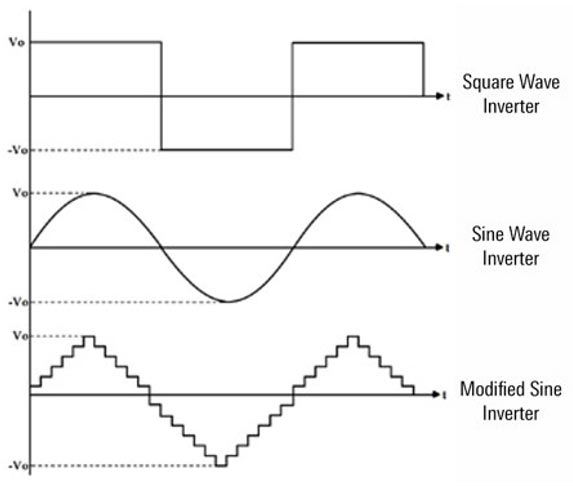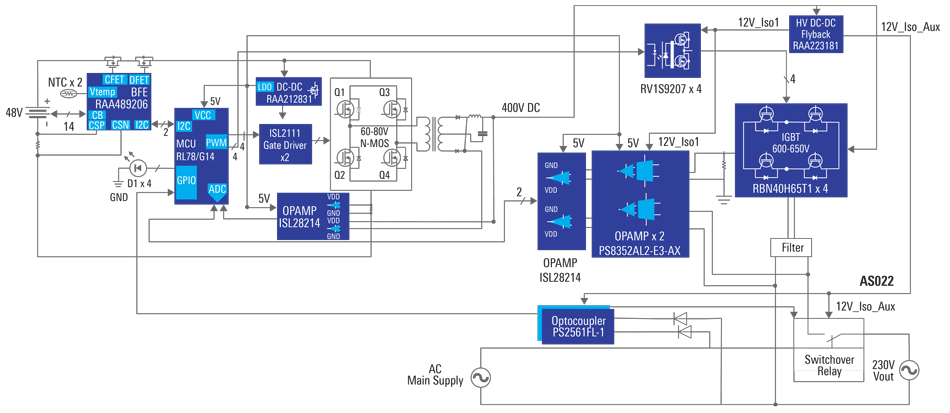Power conditions in developing countries are unstable, and most face power brownouts or blackouts. Home inverters play a significant role in such situations. An inverter is an appliance that converts DC voltage coming from a battery source to conventional household AC voltage 120VAC/220VAC. The generated AC voltage is used to power loads for televisions, refrigerators, lighting devices (LED bulbs, tube lights, fans, etc.), or other inductive loads depending on the power rating of the inverter.
The evolution of the home inverter started from offline square wave inverters to online sine wave inverters. A square wave inverter is inefficient and noisy due to the square wave output, whereas a pure sine wave inverter is a noiseless and efficient system with lower losses and clean load waveforms resulting in longer power backup.
We typically see three types of inverters (Figure 1):
- Square wave (low cost, low performance)
- Modified square wave
- Pure sine wave (highest performance)

The present inverter market is going through a shift from traditional modified sine wave inverters to pure sine wave inverters because of the benefits that these inverters offer. We also see battery type trends moving from typical lead acid batteries to Li-ion batteries
Renesas has a variety of products that will help in developing an efficient and reliable inverter. Figure 2 is a system architecture/winning combination, which provides a system-level solution/operation. A low-cost, high-performance RL78/G14 MCU is used to convert the DC battery voltage to high-frequency DC voltage through a boost circuit. This voltage is fed to full bridge power IGBTs (RBN40H65T1) and filters which convert it to a low-frequency AC sine wave output for appliances. The product performance is controlled by an intelligent battery management system (BMS), the RAA489206.
System benefits:
- A low-frequency and high-frequency inverter can be derived from the same solution.
- Isolated system to track the AC output.
- Auxiliary flyback power supply for isolated systems.
- RL78/G14 low-cost MCU performs the low and high-frequency H-bridge drive.

For more information on this and other winning combinations visit the winning combinations page, renesas.com/win to see more solutions that can be used to help accelerate your designs to get to market faster.
